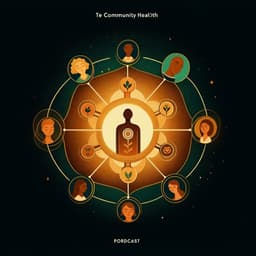
Psychology
Mentalizing, Resilience, and Mental Health Status among Healthcare Workers during the COVID-19 Pandemic: A Cross-Sectional Study
T. Safiye, M. Gutić, et al.
This study conducted by Teodora Safiye and colleagues explores the intriguing connections between mentalizing capacity, resilience, and mental health among 406 healthcare workers during the pandemic. Discover how resilience can mitigate depression and anxiety, highlighting the need to enhance mentalizing abilities in the healthcare sector.
Related Publications
Explore these studies to deepen your understanding of the subject.







